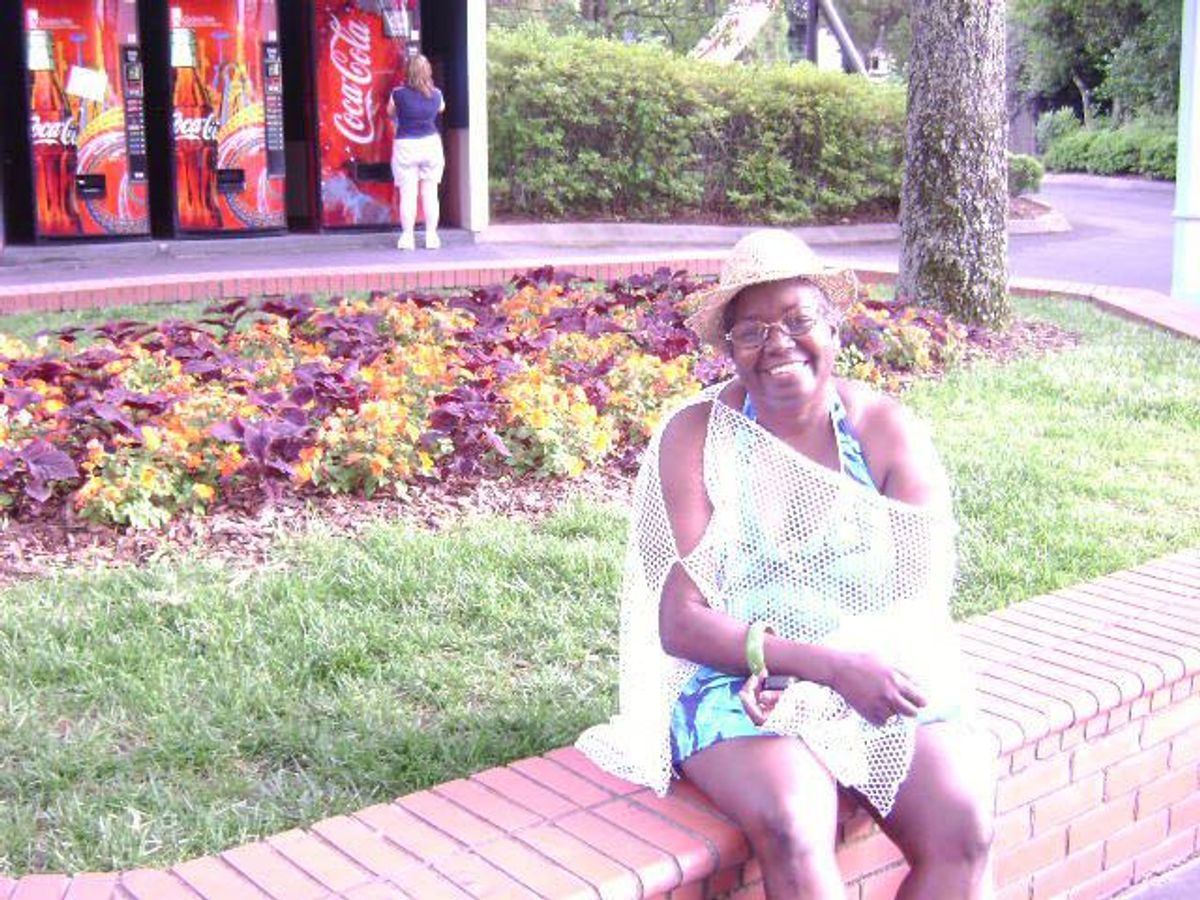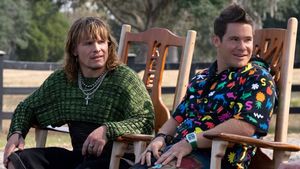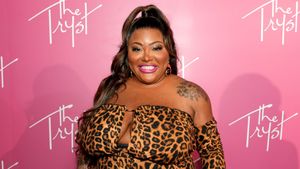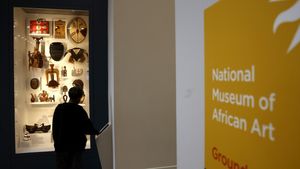Pat Kelly is a native New Yorker, who recalls her relocation to South Carolina in 2003 as “truly a culture shock” that left her without a support network—at first. Then, Kelly says, “I went to my first HIV conference and saw all the things others were…doing in their area and I started to wonder why Orangeburg was so different. I finally got the thought — if we want change and a support network we got to do it ourselves!”
She found an ally in her local pastor, whose church housed the Minority AIDS Council and was “open for supporting us with whatever we needed." Kelly made flyers and went out in the community to invite people to the first support group of people living with HIV as well as family members affected by HIV.
"We started as a support group but grew to be more,” she recalls.
She got funding from Project F.A.I.T.H.—an organization that gives money to churches to provide HIV-related programs and services to their congregations and surrounding communities.It helped her new group, A Family Affair (AFA), set up a speaker’s bureau and begin outreach to the community. Kelly says AFA “got our community to see the faces of people living with HIV. We speak on the college campus to the youth, we speak to faith leaders, and we do events to commemorate awareness days. We distribute condoms in nontraditional places like barber shops, laundry mats, and basketball courts. We created a Serenity Garden as a memorial to those who lost the battle and to celebrate those still in the trenches yearly."
Kelly says the group members "work hard to keep awareness and to let others know HIV is still alive and kicking and touches us all.”
It may be difficult for some people to believe, but this community organizing church lady was once an injection drug user who spent time in prison.
“I was diagnosed while I was in prison,” says Kelly, who learned she had HIV in 1985 and was diagnosed with AIDS in 1998.
She acknowledges that the “bad behaviors” that got her locked up where only heightened after her diagnosis. “After being told the way I was told and believing I was going to die, I lived that way for a very long time. I knew that my drug-using friends could care less, we were already the outcasts, and we were watching our friends die without knowing why.”
She says, “In the drug community…[people] don’t care about nothing but getting high.…As long as I was in the drug community I was in a fog and didn’t care.”
Eventually, with the help of religion and “positive people who had been there or saw something in me that I didn’t see,” Kelly stopped using drugs. She blamed the drug use for her HIV, Kelly says.
"At first, I saw it as a punishment, but then after living — and living well — I realized I had a purpose: to tell my story and help others get over the struggle and learn to accept and free themselves…[from] all the shame and guilt.”
Now, she says, “I am someone and I have purpose. I changed behaviors to stay out of jail and to stop using drugs with the mission to help those in need to do the same if they want to change. I realized I was valued and if I could change me, I could have influence, and help to change other things important in so many lives.”
Since her diagnosis, Kelly has been affiliated with dozens of local, regional, and national organizations. She is a co-founder and board member of Positive Women’s Network-USA; sits on the steering committee for the U.S. Persons Living with HIV Caucus; is a board member for the Minority AIDS Council of Orangeburg Bamberg and Calhoun Counties; and she's the principal investigator with the community project EX- Offenders Discussion of Unmet Services (EXODUS).

Kelly (above left) with friends at a NRHA conference.
Kelly’s also been involved with the Vision Leadership Institute; the South Carolina HIV Planning Council; AIDS Alliance for Children, Youth & Families; SisterLove; Be The Next Generation-AIDS United; HIV Prevention Justice Alliance; and the Storytelling Project of University of South Carolina. In 2014, she was honored at the Positive Living Conference as the first black woman to receive the Martin Delaney Power of One HIV/AIDS Advocacy Award.
An active member of Common Threads and the Microenterprise Circle, she serves on the steering committee of the latter and is a craft trainer. If you’ve attended an U.S. Conference on AIDS any time since 2012, you’ve probably seen her at the Common Threads exhibitor booth. She currently leads the Crochet Conference Bag Project for the 2016 USCA in September.
What makes Kelly a keen activist is her compassion, and the fact that's proud to have become a person who sees “the good in people when they can’t see it in themselves, to have empathy for people and to meet people where they are at and show compassion have passion and show love to my brothers and sister who others would cast off.”
Today, she admits, “No one believes me when I share [my experience with] drugs and prison!” But her past has helped her “be strong and prepare for the worst in people but be understanding from where they may have been. It helped to get educated to be able to know what I am talking about.”
Kelly sees her greatest accomplishment as “waking up and living when the odds were against me — and here I am 31 years later, [having lived] half my life with HIV. My greatest joy was being clean and sober and watching my last two grandsons be born." But in the arena of HIV activist, she's proudest of the Serenity Garden and the Common Threads Bag Project for USCA.
She may be over 60, but this grandma has no plans to slow down anytime soon. Instead, Kelly will be traveling to Africa (“a place I always wanted to visit”) on a full scholarship. While there, she hopes to help create an organization by and for women “in a place where women are an afterthought.”
And after she returns? “I would really like to attack racism and stigma.”
Those are no small goals, but with all she’s accomplished so far, it’s clear Kelly is just the woman for the job.













































































